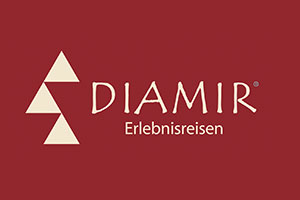Gabon
Travel trips for Gabon
Top 5 Experiences
Amidst Central Africa, Gabon offers an abundance of natural riches. Highlights include:

Beach Safari
Loango National Park stands as the exclusive global destination where elephants roam freely along the beach, even swimming in the Atlantic Ocean.

National Parks
Ivindo and Lope Okando, UNESCO World Heritage sites, unveil the untouched beauty of Gabon’s rainforests and savannas, fostering a diverse ecosystem and safeguarding endangered large mammals.

Libreville
Witness the blend of tradition and modernity in Libreville. Explore its galleries, artisanal markets, and visit the National Museum of Art and Tradition.

Lambarene
Home to the Albert Schweitzer Hospital, Lambarene is a historic symbol of compassionate healing. Founded by Nobel laureate Dr. Albert Schweitzer in 1913, this hospital has been a beacon of medical care, embodying the enduring spirit of humanitarianism.

Oguuee River Cruise
Feel the essence of the first explorers along Africa’s tropical rivers, diving into the unique beauty of Gabon’s waterways.
Touristic infrastructure
The main international gateway to Gabon is Libreville Leon Mba International Airport (LBV).
The country’s main roads can sometimes be in less-than-ideal condition, particularly during the rainy season, which might require off-road vehicles for certain routes. Public transportation options, such as buses, minibuses, and taxis, may vary in terms of roadworthiness.
Gabon offers a developing hotel infrastructure, with a range of accommodations available in major cities and tourist destinations.
Climate
Gabon has a tropical rainforest climate. The atmosphere is usually moist, as typical in in tropical regions. During the rainy seasons from October to mid-December and from mid-February to May, flooding may occur.
Visa
For entry requirements and visa information, please refer to the website of your respective embassy. Links provided below.
Impressions from Gabon
(Click to enlarge)
Stories
International Hotel Chains Are Driving the Hotel Boom in Africa
Frankfurt, 03 April 2024 - The "Big 5" of global hotel chains - Accor, Hilton, IHG, Marriott International and Radisson ...
Internationale Hotelketten treiben den Hotelboom in Afrika voran
ReThinking Africa Initiative setzt sich für Investitionen in Afrikas Tourismuswirtschaft ein Frankfurt, 03. April 2024. Die „Big 5“ der globalen Hotelketten ...
Voice4Africa x ReThinking Africa News March
KLEBER Group x ReThinking Africa News March 2024 Content Foreword Investment in Africa's tourism industry as a driver for sustainable ...
Our partners in Gabon:
Visas, Entry and Updates
Current accessibility
Corona precautionary measures
Status: 03.03.2022












